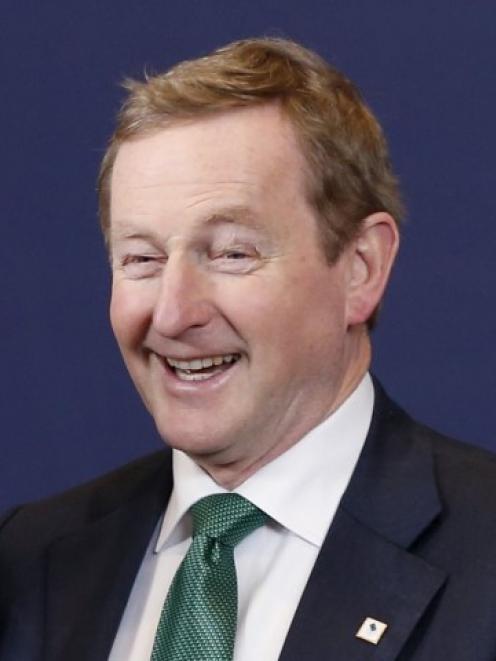
The Fine Gael party's Kenny made the offer on Wednesday evening (local time) during his first meeting with the leader of historic rival Fianna Fail, almost six weeks after voters rejected his ruling coalition without choosing a clear alternative.
The rejection leaves the country facing the prospect of an unstable and potentially short-lived minority government led by one party and facilitated by the other, or a new election.
"The consensus view of the party was a reiterating of our consistent message that the best interests of the Irish people are not served by a government made up of Fianna Fail and Fine Gael," Fianna Fail leader Micheal Martin told reporters after a second meeting with Kenny that lasted just 10 minutes.
"We would support a Fine Gael-led minority government but Fine Gael need to also make it clear that they would facilitate a Fianna Fail-led government if the numbers added up."
Kenny, who insists his party would not back a minority administration led by its smaller rival, said in a statement that Martin's decision was a serious mistake and "driven by narrow party interests rather than the national interest".
The two centre-right parties differ little on policy but have been bitter foes for decades, tracing their rivalry back almost a century to Ireland's civil war.
"It is a disappointing outcome that Fianna Fail haven't even given a day of consideration to a really significant and historic offer. I can only think that's for political, strategic reasons," senior Fine Gael minister Simon Coveney said.
The impasse has so far had little effect on Europe's best-performing economy, which grew nearly 8 percent last year, but consumer sentiment posted its sharpest fall in 17 months last month. Ireland's 10-year bond yield rose 7 basis points on Thursday to 0.83 percent but is near record lows.
Analysts say a weak minority government could potentially paralyse efforts to tackle bottlenecks in housing and infrastructure that threaten to choke the economic recovery.
Bookmaker Paddy Power said on Thursday it had cut the odds of a second election taking place in 2016 to 6/4 from 4/1.
"It now is starting to look seriously like we're going to walk into the next election if we're not too careful," said David Farrell, politics professor at University College Dublin.












